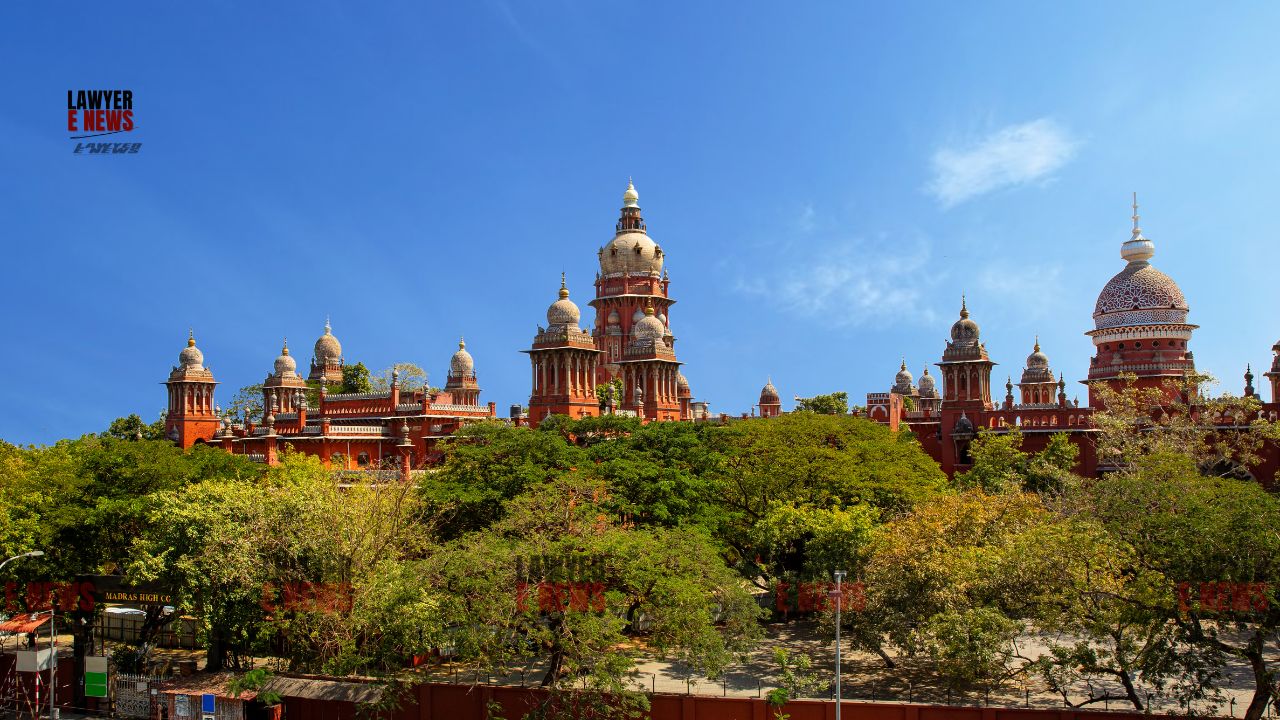-
by Admin
15 February 2026 2:16 AM



Madras High Court acquitted Mohideen in a methamphetamine trafficking case, setting aside the conviction and 10-year sentence imposed by the I Additional Special Court for Exclusive Trial of Cases under the NDPS Act, Chennai. The Court ruled that the mandatory provisions under Sections 42, 50, and 52-A of the Narcotic Drugs and Psychotropic Substances Act (NDPS Act) were not followed, rendering the conviction unsustainable. This judgment underscores the critical importance of adhering to statutory safeguards in narcotics cases.
Mohideen was charged under Sections 8(c) r/w 22(c) and 8(c) r/w 28 of the NDPS Act for alleged possession and trafficking of 535 grams of methamphetamine. The prosecution's case was based on a raid conducted on May 13, 2018, by the Narcotics Control Bureau (NCB), during which the contraband was reportedly seized from the appellant at a hotel in Chennai. Following the trial, the Special Court convicted Mohideen for possession of methamphetamine under Section 8(c) r/w 22(c) but acquitted him of the conspiracy charge under Section 8(c) r/w 28. Mohideen appealed the conviction, citing procedural violations and the improper handling of evidence.
The central legal issue was whether the NCB complied with the mandatory provisions of the NDPS Act, including Sections 42, 50, and 52-A, during the investigation and seizure process. The appellant argued that these provisions were not followed, violating his constitutional rights. Additionally, he contended that the statement recorded under Section 67 of the NDPS Act was inadmissible, as he was not properly informed of his rights in a language he understood.
The Court found that the NCB did not comply with Section 50 of the NDPS Act, which requires informing the accused of their right to be searched in the presence of a Magistrate or a gazetted officer. The prosecution relied on an oral statement by the appellant, wherein he allegedly refused to be searched before a Magistrate. However, the Court noted that there was no written notice or record showing that the appellant was properly informed of this right in a language he understood, as he was only conversant in Kannada.
Section 42 of the NDPS Act mandates that officers must record their reasons for belief while carrying out a search or arrest based on prior information. The Court found that while the intelligence officer had prepared an information report and placed it before his superior, there was no evidence that reasons for the belief were recorded or that proper authorization was given for the search in compliance with Section 42(1).
The Court observed that Section 52-A of the NDPS Act, which requires the sampling and disposal of seized narcotic drugs in the presence of a Magistrate, was not adhered to. In this case, the samples were drawn and tested by the NCB officers before being produced before the Magistrate. The Court cited the Supreme Court’s ruling in Union of India v. Mohanlal that mandates drawing samples in the Magistrate's presence to ensure the integrity of the evidence.
The Court noted that the appellant’s statement recorded under Section 67 was in Kannada and later translated into English by an Intelligence Officer who was not examined during the trial. The Court, referencing the Supreme Court’s ruling in Tofan Singh v. State of Tamil Nadu, held that such statements are admissible only to the extent of recovery, which was not applicable in this case as the contraband had already been seized.
Given the procedural lapses and violations of the statutory safeguards under the NDPS Act, the Madras High Court ruled that the prosecution's case was not free from suspicion and failed to prove guilt beyond a reasonable doubt. Consequently, the Court acquitted Mohideen of all charges, setting aside the conviction and sentence imposed by the trial court.
Date of Decision: September 3, 2024
Mohideen vs. State By Intelligence Officer, Narcotic Control Bureau
